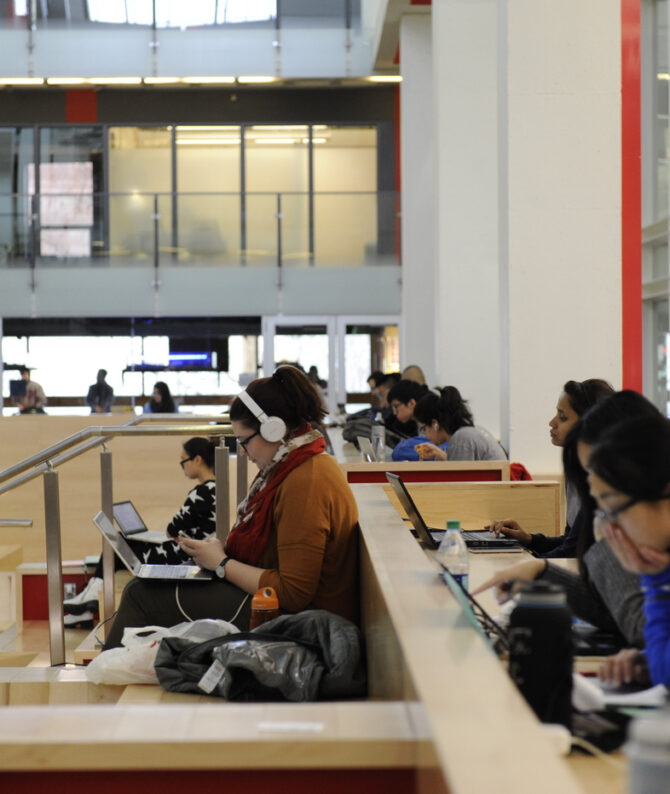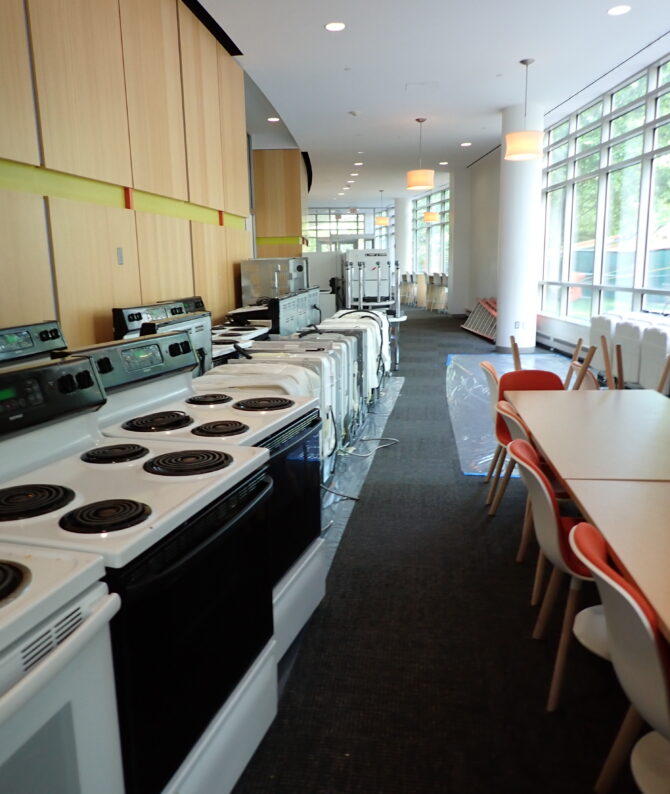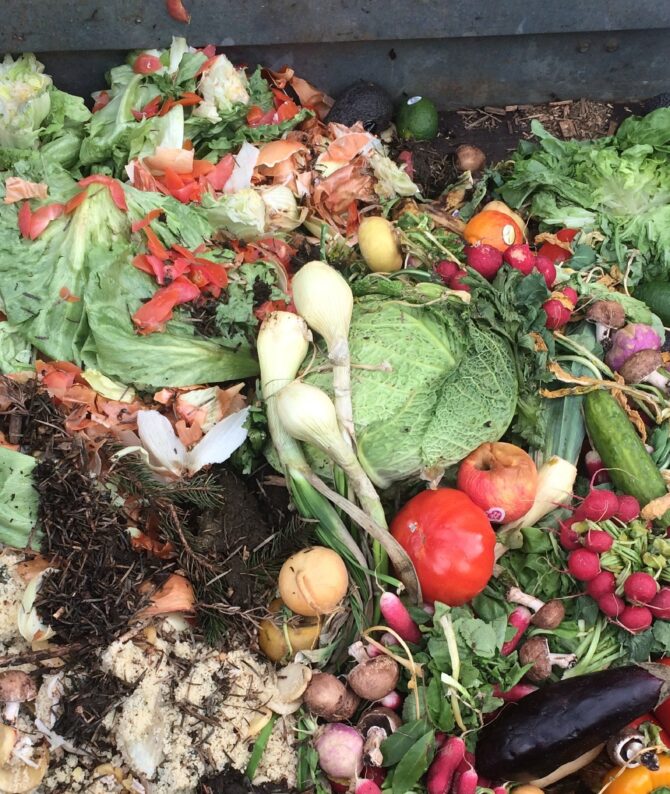Food Rescue US Chapter Thriving in Boston Thanks to a Northeastern Student
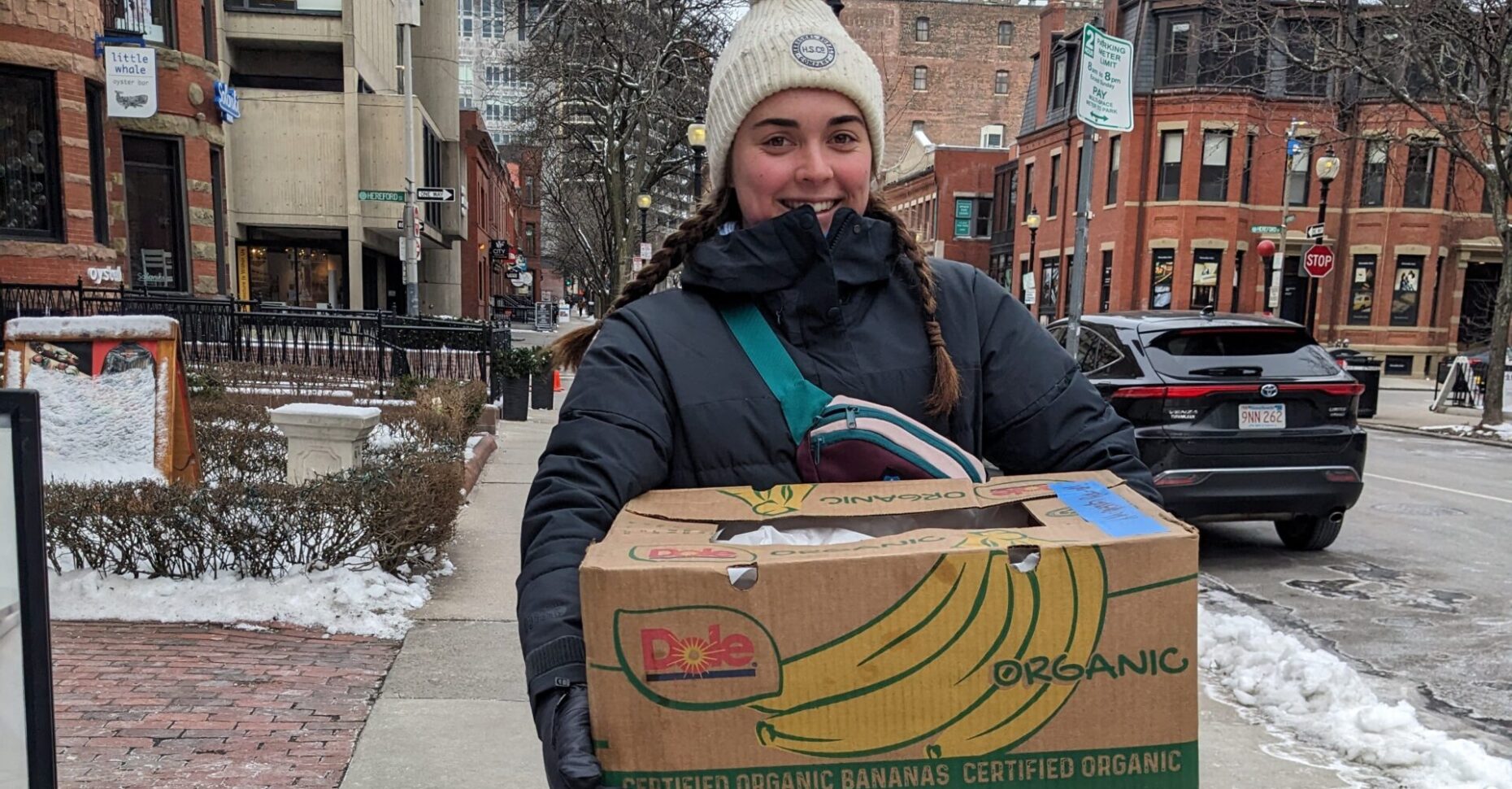
Mia Thomas, a fifth-year health sciences major at Northeastern, was rescuing groceries and ingredients to give to food pantries, shelters and other agencies when she came across an expensive and unbelievable sight: approximately 50 cartons of eggs, all gone bad. A stack nearly 5 feet tall of precious, nutritional cargo all spoiled.
The eggs were from a large supermarket and were going to be delivered to a local food pantry, but they unfortunately could not be rescued due to poor storage environment. Mia was shocked. Considering the high prices of eggs these days and the city-wide need for food, she couldn’t imagine how a store could let so much good product go to waste by leaving it out at room temperature.
Unfortunately, that is the reality of food waste in America, which is exactly what Thomas is attempting to combat through her work with the Boston site of Food Rescue US.
Food Rescue US is a national organization with 42 specific locations across 24 states and DC. The Boston site was started up 7 months ago by Charlie Burns, the current Site Director, who found her way to this nonprofit organization through her background in technology, culinary studies, and management.
Thomas joined Burn’s efforts growing the Boston site for her capstone project. She currently works on volunteer recruitment and engagement, connecting agencies with donors and scaling the business as it grows. Utilizing Thomas’ work on her capstone, Burns will have the materials and job outline to hire a site coordinator to take on the various tasks Thomas has been doing.
The Boston site focuses on both the city and the surrounding communities in greater Boston, though Thomas says there is room for growth and will ideally be active in all nearby neighborhoods.
Volunteers pick up the food from a supermarket or restaurant then immediately deliver it to a shelter or agency in need. This mutual aid model allows all food to be free to agencies, as opposed to them having to buy food from the Greater Boston food bank, which is expensive. Massachusetts law does not require volunteers to be Food Handler certified; however, Thomas herself obtained this certification in order to learn more about the role and prioritize safety.
“If you’re a volunteer, you are providing people meals day of, which is really really cool,” Thomas said.
| Volunteer recruitment is one of Thomas’ struggles right now, the organization currently gets approached by a lot of restaurants or supermarkets looking to be donors, but less agencies to donate to and even less interested volunteers. Part of the struggle in the city is that many people, students in particular, do not have cars so the donation has to be a carriable amount and the 2 places must be in walking distance. Thomas also recognizes that there are so many different types of service opportunities in Boston to get involved in and that food rescue might not be every person’s passion. But it is for her, and this capstone has allowed her to get more involved in the community than she ever has before. This internship is not only an opportunity to learn, but it is also an opportunity for her to give back and focus on making a difference in the community. | 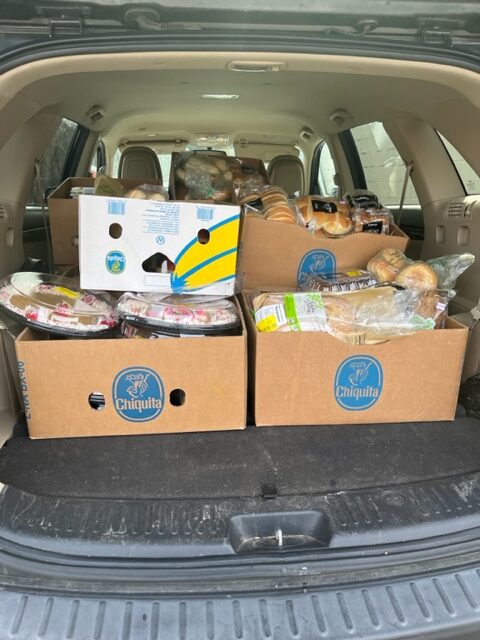 |
Thomas helps to pair agencies and donors according to needs, availability and capacity. For example, some food banks only distribute food certain days of the week so they cannot accept donations other days. Others may not have the fridge space for refrigerated food or may only be looking for ingredients that can turn into meals. To combat this challenge, Burns and Thomas work hard to talk to chefs and pantry leaders to understand their needs before finding the best food donor for that given agency.
“Finding the perfect agency for the donor is critical, and also ensuring that you have volunteers in the area because if rescues go unclaimed then it kind of defeats the purpose because the food goes to waste,” Thomas said.
Food Recue US also works with grocery stores, which produce an abundance of food waste. In grocery stores, employees will cull the shelves, which means take away food that is close to expiration date because people are more likely to choose foods that will last longer in their fridges. That food that is not yet expired and still good for a few more days can then immediately begiven to a shelter and eaten by people in need that day.
“If we wouldn’t eat it, we wouldn’t give it to the community,” Thomas said.
Capacities of agencies aside, Food Rescue will take anything they can, not only things that may be considered nutritional. People experiencing food insecurity will prioritize traditional fulling meals and don’t get the opportunity to splurge on what may be an extra.
“When we go and rescue foods from whole foods and they give us the in house, baked goods, we’re going to take that because that’s such a luxury to give to families that can’t necessarily budget that in their grocery lists,” Thomas said. “Nutritional eating aside, kids want a cookie every once in a while.”
Food has always been important to Thomas, she used to volunteer at soup kitchens in high school and currently has a minor in nutrition.
“Part of combatting food insecurity is giving people food that is going to bring them joy and I think that’s something I’ve always enjoyed about food,” Thomas said.
Written by Renée Abbott, March 17th, 2023

